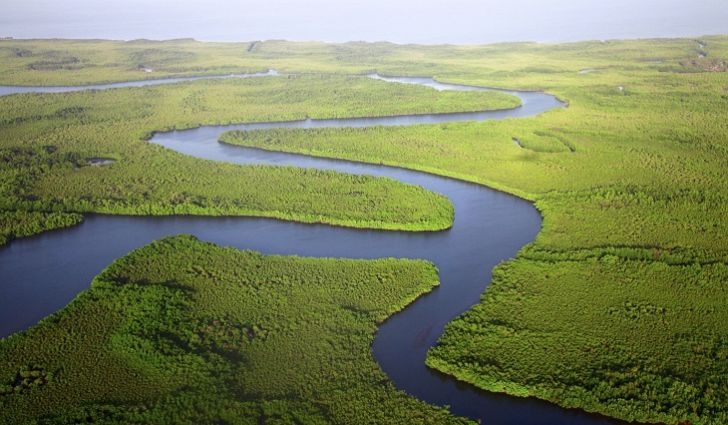$25.5 million investment to protect Gambia’s river basin from climate change

A new project from UN Environment and the Green Climate Fund (GCF) will protect Gambia’s agricultural sector from the increasingly damaging effects of climate change.
The six-year adaptation scheme was launched last week with the aim of restoring degraded forests and establishing climate resilient practices among local communities.
Gambia’s Minister of Environment and Climate Change, Lamin Dibba, commented at the launch:
"This timely assistance will integrate ecosystem-based adaptation to climate change into planning at the national, district and village levels throughout the Gambia. Increasingly severe droughts during the past few years, along with the threat of sea level rise, means the Gambia is particularly susceptible to a changing climate".
Gambia is Africa’s smallest mainland country, situated on the coast and either side of the Gambia River. As a result there is an increased likelihood of flooding.
In a statement, the GCF explained that “the combined effects of sea level rise, erosion of coastal embankments and increased river sedimentation threaten to dislocate communities through major flooding”.
Agriculture remains a vital part of the economy, estimated to be worth 26 percent of its GDP, and responsible for 40 percent of national exports.
The adaptation project will focus on covering 10,000 hectares of forests, mangroves and savannahs with climate-resilient trees. These will be managed by local communities who will be trained in sustainable management practices. It is estimated that upwards of 57,000 people could benefit from the scheme. It will also provide strong experience for further such projects in the country.
UN Environment's Green Climate Fund Coordinator, Ermira Fida, explained:
"UN Environment is particularly proud of this project as its ecosystem-based adaptation approach not only helps vulnerable rural communities build resilience over large landscapes, it also empowers them to use their own knowledge and decision-making processes to take climate change action”.
Aid & International Development Forum is hosting its inaugural Africa Climate Smart Agriculture Summit on 15-16th May 2018 in Nairobi, Kenya. The summit will discuss innovations and challenges in CSA practices, increasing cross industry collaboration for CSA, financial investment for CSA and much more.
Find out more about Africa Climate Smart Agriculture Summit, including the agenda and speakers.
Image Credit: World Atlas














